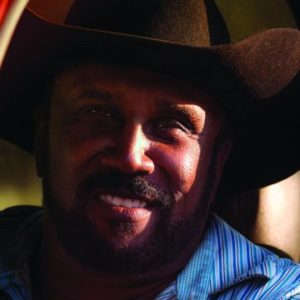Successful Farming: Q & A: John Boyd, Founder and President of National Black Farmers Association
 by Mike McGinnis | September 7, 2018
by Mike McGinnis | September 7, 2018
As the founder and president of the National Black Farmers Association, and a farmer himself, John Boyd helps others face the many challenges of capturing a fair market at local mills and elevators, getting credit, and accessing USDA programs.
SF: How many black U.S. farmers are there?
JB: About 45,000 make a living off of the farm. They are mainly located in the eastern corridor of the U.S. and in the deep South as far west as Texas. With the average-size farm at 50 acres, black farmers are considered small-scale operators. Many are diversified with row crops, organic crops, vegetables, and livestock.
SF: Are they innovators when it comes to equipment and soil practices?
JB: A lot of black farmers have older equipment. We have some African-American farmers who are competing with cutting-edge technology, but the larger percentage are running older equipment. A lot of black farmers are very conservation-minded, and that is part of the reason they’re still on the farm.
SF: What challenges do black farmers face in 2018?
JB: The question has never been if blacks can farm; rather, can we get access to credit and good and fair markets. We have all kinds of agribusinesses that want to take ideas and concepts to black farmers. Yet, when we ask, ‘What will we get if we plant this or that crop?’ a lot of times that question remains unanswered. You just can’t plant something if you don’t know where you’re going to sell it and what price you’re going to receive for it.
SF: How have the USDA policy changes helped grow opportunities and the number of black farmers?
JB: We do have a civil rights representative on the cabinet of the USDA Secretary – finally. So if something doesn’t go right with a government program that they’re trying to get signed up for, black farmers feel like they have someone to contact. We see this as a form of checks and balances on the program side of things. So we see improvements with the Civil Rights office and the Office of Advocacy. The Trump administration’s outreach to include African-Americans in the administration has been slow.
SF: Do you still see racism, prejudice, and discrimination occurring in agriculture?
JB: Yes, I think it still exists. For instance, this year, I had a great winter wheat crop. When I got to the mill to sell it, I saw some of my neighbors receiving the going price, but then I got there with good grain, and they found a way to dock it. It’s that kind of underlying stuff that hurts black farmers around the country. It’s getting harder and harder to get an operating loan from banks, too. I think some of that is race-related.
SF: The U.S. Commission on Civil Rights once predicted there would be no black farmers in the U.S. by 2000. What are your thoughts on that?
JB: They said that in the 1990s, when two studies were released about black farmers. The numbers were – and still are – astonishing, because the oldest occupation for U.S. black people is farming. As founder of the NBFA, I have been on a campaign stressing that we have to do more to keep black farmers on the farm. I believe our government can do more to help us.
SF: Do you plan to pass the farm on to your sons?
JB: That is a decision that is weighing heavily on me regarding the next generation. I’m trying to get them to step up their game. I still need to see if they can cut the mustard of farming. They are learning the ins and outs. If I had to turn it over to them today, they might not be able to handle it.
SF: What is your farming philosophy?
JB: I love farming. I’ve been at it for 35 years with my dad, with a stream of off-farm income to back me up. I’m not out here to get rich; I’m trying to get from season to season. I try to get all that I can out of my farm. I’m that kind of farmer. I was taught that if I take care of the land, it will take care of me.
SF Bio:
Name: John Boyd, farmer, as well as founder and president of National Black Farmers Association
Hometown: Baskerville, VA
Background: The Boyd family grows 400 acres of soybeans, wheat, and corn and raises 100 head of beef cattle. The Boyds were originally peanut and tobacco farmers. Boyd is a fourth-generation farmer. He farms with his wife, two sons (ages 26 and 22), and two cousins. Boyd also coordinates the annual NBFA conference and is the recipient of two honorary doctorates.